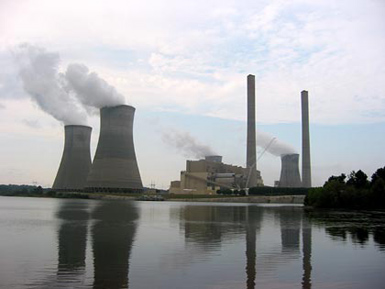
Washington is in a tizzy about "who killed coal?" in the wake of EPA's new air pollution standard for carbon pollution. That standard, which requires that new power plants be at least as clean as a new natural gas plant, has blocked a miniscule number of coal plants that were still proceeding -- but observers are pointing out that almost all of the new coal plants being proposed five years ago had already been cancelled, because of underlying economic uncertainty, deployment of wind, and cheap gas. That doesn't stop coal industry advocates from blaming EPA. Just before EPA issued the rule, coal industry allies in Congress wrote a letter referencing claims that EPA's clean-air rulemaking in the last two years had already cost 1.4 million jobs. The American Clean Coal Council complained that EPA's rules had already shut down 140 coal plants.
But the back-story is not being told. It turns out that while Joshua Freed is correct in saying that "Blaming regulation for the decline of coal is like blaming cars for the demise of horse-drawn carriages", coal actually laid the foundation for its own demise thirty years ago.
In 1977, Congress proposed to require all power plants -- regardless of when they were built or what they burned -- to meet basic pollution control standards. Coal and its utility allies -- led by the Southern Company -- argued that they were about to shut down their fleet of old coal clunkers anyway, and that pollution controls would be a silly expense for assets that were about to be retired. Congress believed them, and even gave the Southern Company a loophole that allowed it to "grandfather" and exempt from pollution controls coal power plants that came on line as late as a twelve years after the law was passed.

"Southern Company's Plant Scherer -- "Grandfathered" by Congress in 1977, but not completed until 1989.
And then, from 1977 until 2000, utility companies simply refused to upgrade their plants, allowing the entire fleet to continue, vampire like, as a seemingly immortal threat to the public health. Running for President, even George W. Bush implausibly promised to end the "grandfathering" scandal, only to back off once in the White House at the behest of Vice President Cheney.
Instead, coal companies and utilities promised a brand-new fleet of "clean" coal plants -- if you didn't count carbon pollution. A total of 180 was placed in the permit and finance queue -- until, on close examination, it became clear that these new facilities would be neither clean or cheap -- and one by one, they almost all were canceled or abandoned. The few that opened almost broke the financial backs of the utilities that built them -- forcing 25 to 50 percent rate increases on customers.
And when the new plants didn't materialize, and wind and natural gas got cheap, the utilities who, after all, are businessmen, not coal miners, simply dumped the dirty black rock. When EPA finally blew the whistle on pollutants like mercury, coal ash and particulates that legally should have been cleaned up in the decades from 1977 to 2008, the bill for upgrading old coal no longer made sense -- even as the bill for deploying new coal had already gone through the roof. Coal it turned out was not only not clean -- as Al Gore's Reality campaign had already pointed out -- worse, it was no longer cheap.
And that has made all the difference. But it was a self-inflicted wound -- because if the coal industry and its utility allies had really invested in cleaning up their plants from 1977-2000, when the economics still appeared to make sense, then even the arrival of cheap wind and gas wouldn't have been able to knock them off their perch.
A veteran leader in the environmental movement, Carl Pope is the former executive director and chairman of the Sierra Club. Mr. Pope is co-author -- along with Paul Rauber -- of Strategic Ignorance: Why the Bush Administration Is Recklessly Destroying a Century of Environmental Progress, which the New York Review of Books called "a splendidly fierce book."